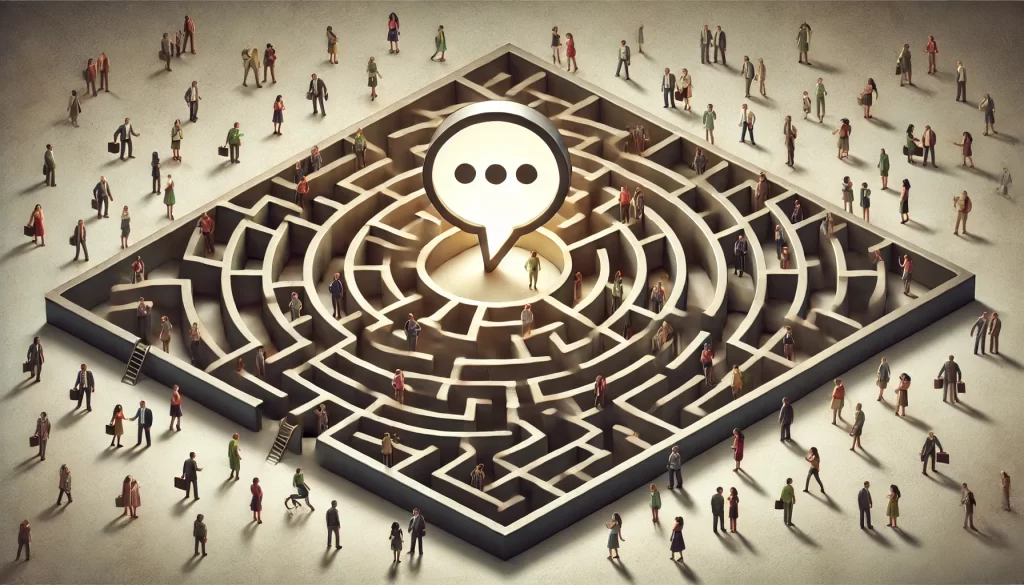
The First Amendment of the United States Constitution is perhaps one of the most celebrated foundations of American democracy. Its free speech clause grants citizens the right to express opinions without fear of government censorship. But this cherished freedom brings with it a complex question: how can a society uphold free speech, yet prevent harmful speech from tearing at the fabric of tolerance and democracy? Here, we confront a philosophical dilemma called the “Paradox of Tolerance”—and it becomes especially relevant in a world flooded with misinformation.
When nearly anyone can say nearly anything to millions online, a society lacking critical thinking skills is at risk. People may struggle to tell fact from fiction or dismiss dangerous ideas as merely “another opinion.” This isn’t a call to curtail free speech or weaken the First Amendment. Instead, it’s an appeal to strengthen the public’s ability to discern truth from deception, ultimately allowing us to enjoy the full potential of free speech without self-destructing.
The First Amendment and Common Misconceptions
The First Amendment’s free speech clause, at its core, protects citizens from government censorship. This means that the government can’t legally silence voices simply because they’re inconvenient or unpopular. The amendment was designed to safeguard open debate, create space for dissent, and give individuals the freedom to speak truth to power without fear of government retribution.
But here’s a detail that’s often misunderstood: this protection applies only to government actions. The First Amendment does not—and was never meant to—restrict the choices of private companies, including social media platforms and media outlets. Facebook, Twitter, or any other privately owned company has the right to control what’s allowed on their platforms, setting community guidelines, banning hate speech, or even deciding to prohibit words like “blue” or “Christmas.” They aren’t obligated to host any particular view or opinion because they aren’t government entities.
This doesn’t mean free speech is meaningless in today’s digital landscape; it simply means that our online speech exists within the limits set by private companies, which operate under their own policies. The confusion surrounding these boundaries often fuels frustration, especially when controversial voices are banned or content is flagged. Understanding this is critical to navigating free speech debates in a private enterprise-dominated digital world.
Another misconception of the First Amendment right revolves around the response to free speech. Freedom of speech protects your right to express ideas, even unpopular or controversial ones, without fear of government censorship. However, it doesn’t shield you from the personal or social consequences of what you say. The classic example of “yelling fire in a crowded theater”—a phrase made famous by Justice Oliver Wendell Holmes—illustrates this well. If the speech causes harm or danger, legal consequences can follow, and, similarly, certain statements can have personal or professional fallout.
You’re free to believe and say what you want, but that doesn’t mean others have to accept or agree with you. Friends, family, and employers are all entitled to react to what you say. For instance, anyone who has the audacity and lack of situational awareness to actually say the words “Your body, my choice,” should expect to face serious—and probably very painful—backlash.
Society values freedom of speech, but it also values accountability—at least for average citizens. The lack of consequences or accountability for powerful or wealthy people is a completely separate issue for another day. Exercising freedom comes with responsibility, and the expectation that others may—and often will—respond.
The Paradox of Tolerance: Tolerating the Intolerable
Now, let’s dive into the Paradox of Tolerance. Coined by philosopher Karl Popper in 1945, this paradox argues that a society committed to unlimited tolerance may ultimately undermine tolerance itself. Why? If a tolerant society allows intolerant viewpoints to go unchecked, those viewpoints can eventually erode the very tolerance that made them possible.
In today’s context, this paradox takes on new weight. Our online spaces, teeming with unfiltered opinions, can amplify voices that promote intolerance or spread misinformation. While these opinions might not seem immediately threatening, over time, they shape beliefs, attitudes, and, in some cases, actions that destabilize social cohesion.
Consider how rapidly harmful misinformation spreads online—echo chambers emerge, creating spaces where harmful beliefs are not only tolerated but reinforced. The result is a society in which people become more polarized, and misinformation that could genuinely harm public welfare is given equal footing with facts. This tolerance of all ideas, even those built on lies or promoting hate, paradoxically eats away at the stability tolerance is meant to support.
The Impact of Digital Echo Chambers
Social media platforms, which dominate so much of our communication, often function as amplifiers for the Paradox of Tolerance. Algorithms frequently prioritize content that confirms existing beliefs, reinforcing the echo chamber effect. In these spaces, users can comfortably avoid opposing views, consuming only information that aligns with their pre-existing beliefs and biases.
While this can lead to greater engagement for the platform, it has social consequences. When people only see views they agree with, they are more likely to believe that those views represent the “truth.” Without opposing ideas to balance perceptions, misinformation can flourish, and intolerant beliefs can gain credibility among like-minded groups. This kind of environment is ripe for fostering intolerance and undermining the critical thinking skills essential for healthy public discourse.
This challenge is bipartisan and affects all sides of a debate. In fact, it has been documented that our adversarial nation-states like Russia actively promote propaganda, lies, and false narratives on both sides of an issue because they aren’t invested in one side or the other—the goal is to undermine civil discourse and foment chaos.
I have seen a flood of posts across Threads and Tik Tok in the last 24 hours claiming that hateful misogynist Nick Fuentes’ house in Illinois has been burned down by an arson. I wouldn’t be surprised if that happened given the rage he has chosen to spark by exercising his right to free speech, but a quick search online finds that there doesn’t seem to be any evidence this actually happened. Still, the posts have hundreds of thousands of views, likes, and shares because the algorithm feeds the echo chamber and people are quick to amplify things without doing any research or applying critical thinking skills—which perpetuates and expands the echo chamber.
We’ve seen the real-world impact of misinformation—from public health crises to political unrest. When citizens aren’t equipped with the skills to question sources and evaluate evidence, misinformation can alter perceptions, destabilize institutions, and, in some cases, incite violence. In this light, the Paradox of Tolerance warns us of the risks associated with our modern media landscape.
Critical Thinking as the Solution
But let’s be clear: I’m not advocating for any form of censorship or limits on free speech. Free speech is essential to a free society, even when it’s messy or uncomfortable. The solution is not to control what people can say but to prepare people to discern truth from deception, and critical thinking is the best tool for this job.
Critical thinking—the ability to objectively analyze information, consider alternative viewpoints, and draw reasoned conclusions—is the antidote to the challenges posed by the Paradox of Tolerance. While the ideal of free speech ensures that people can speak their minds, critical thinking ensures they can understand and evaluate what they hear.
So how can we strengthen critical thinking skills? The answer lies in education, not only in schools but through public initiatives that promote media literacy. From elementary school through college, critical thinking, logical reasoning, and media literacy need to be part of the curriculum. Additionally, online resources, workshops, and educational campaigns can help equip adults with the skills necessary to engage responsibly in public discourse.
That is also why those who benefit from the Paradox of Tolerance and the chaos of spreading propaganda and verifiably false information are also the ones who want to silence dissenting views, ban books they don’t agree with, and control or dismantle the US education system. An educated population with critical thinking skills is a threat.
Not Limiting Speech, but Empowering Minds
A society equipped with critical thinking tools can approach the free speech paradox responsibly, sustaining tolerance without sacrificing truth. Imagine a public that can sift through information, understanding that not every opinion is fact and that not every belief deserves equal weight. In such a society, freedom of speech remains intact, but citizens are empowered to engage thoughtfully and respectfully.
The First Amendment doesn’t need adjusting, nor should the government step in to dictate speech boundaries. Instead, we as a society must recognize that free speech, for all its benefits, can be self-destructive if wielded irresponsibly. It’s our collective responsibility to foster a society where truth and tolerance thrive, bolstered by citizens who are ready and able to engage critically with the world around them.
We face a choice as a nation: do we continue to tolerate misinformation and allow it to jeopardize our democratic ideals, or do we empower people with the skills to navigate a complex information landscape?

